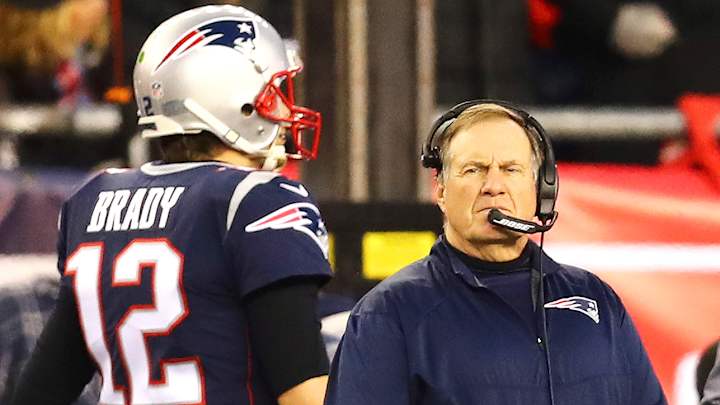So What If Tom Brady Skips Patriots' OTAs?

Tom Brady watchers were disappointed to learn on Monday that the Patriots quarterback would be missing yet another round of voluntary team activities in pursuit of his endless quest for more family time, appreciation from coaches and pliability.
While this maneuver uncomfortably shakes the foundation of Belichickian football—show up when asked, show up on time and perform the specific duties which optimize team success—the same standard we apply to other players across the league during their own OTA sabbaticals should be applied to Brady.
Any star player within earshot of the end of their contract should not voluntarily run around on a field with a group of new, mistake-prone players without feeling completely secure and protected financially (and in this case, I guess, emotionally). And any star player who has this much command of the system and this much on-field proficiency, should enjoy a bit of shot-calling toward the end of their careers in order to maximize all the personal time they sacrificed to get this good in the first place (there are plenty of examples of NFL head coaches allowing players far below Brady’s caliber to miss weekly practices IN SEASON to spend more time with their families).
We can argue that Brady is fighting back against the parts of Bill Belichick’s tough-on-everyone ethos that made the quarterback great in the first place. We can also argue that he’s become a sensitive lifestyle brand huckster who is too far removed from normal society to understand how he sounds in public anymore. But what we cannot argue is that he hasn’t earned this. According to league records, he has two seasons, each with a $14-million base salary and $22-million cap hit, remaining on his contract—one that shudders in the presence of other recent quarterback deals secured by players with 1/1,000th of Brady’s credentials. Over 18 accrued seasons, he has put himself at the psychological edge, missing after-school dinners, birthdays and holidays along the way. It's time to get some of that back.
It comes at a strange time for the Patriots, who privately wish that their team would come together if only so things could get back to normal. And maybe Brady is capitalizing on this a little bit, as we’ve seen him gleefully play the role of boat rocker this offseason in carefully distributed comments throughout his various public appearances. The Boston sports landscape is blooming wildly this spring, and yet everyone only seems predominantly interested in peeking between the blinds in Foxborough.
But it’s not Brady’s job to manage the franchise’s public image. Five Super Bowls, four Super Bowl MVPs, 13 Pro Bowl nods and three league MVP awards have given him a powerful edge over his employer—one that we would almost certainly play up if we had the same type of cache and production for our own employers. Nearly any way one attacks the argument about whether Brady should attend voluntary arguments, they’ll end up sounding like a crotchety high school football coach from the 1970s, preaching selfishly about the TEAM concept.
We argue about this because it’s late May and it’s something to argue about. We care about it because, outside of breathlessly reading Johnny Manziel reports from Hamilton, Ontario, there is no next-popular story in the NFL right now. The pragmatist in all of us should realize that there’s no reason to be truly alarmed until Brady stops missing mandatory time—and even then, there’s precedent. He has, through hard work and a little bit of old fashioned stomping and fussing, created the perfect situation for himself. He won’t be traded. He won’t be cut. He is essential, and therefore, he can do whatever the hell he wants so long as the production maintains.

Conor Orr is a senior writer for Sports Illustrated, where he covers the NFL and cohosts the MMQB Podcast. Orr has been covering the NFL for more than a decade and is a member of the Pro Football Writers of America. His work has been published in The Best American Sports Writing book series and he previously worked for The Newark Star-Ledger and NFL Media. Orr is an avid runner and youth sports coach who lives in New Jersey with his wife, two children and a loving terrier named Ernie.
Follow ConorOrr